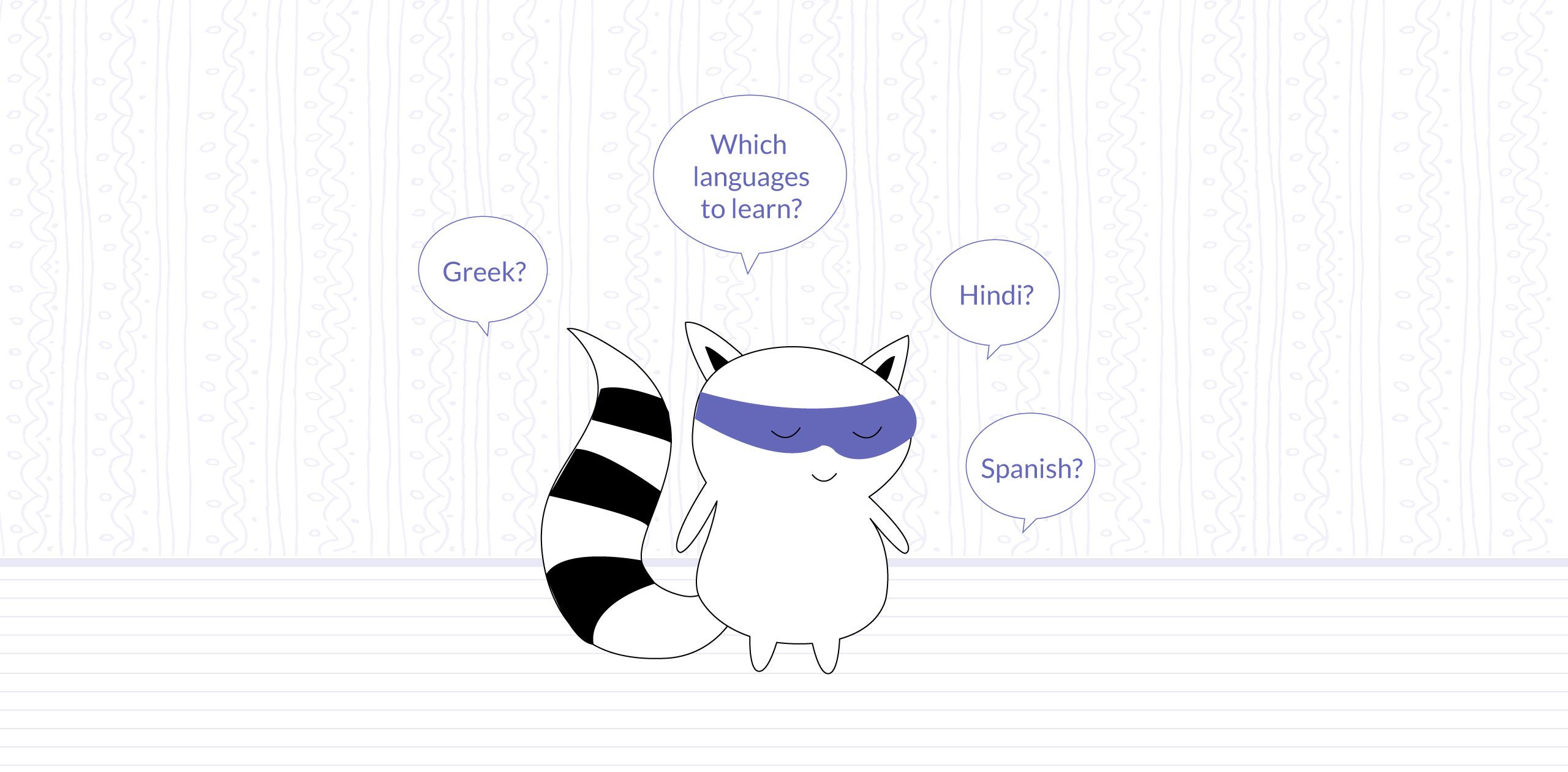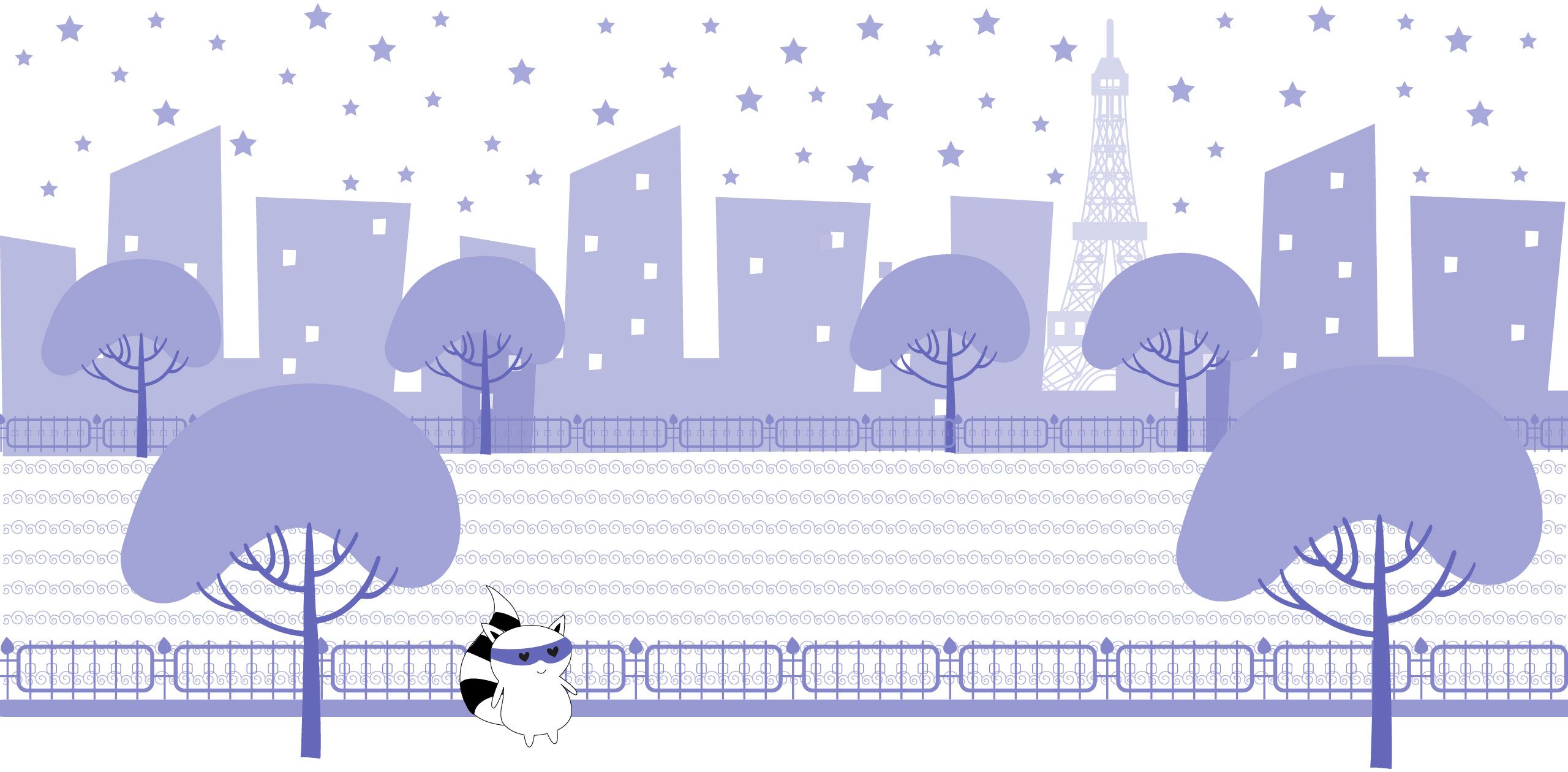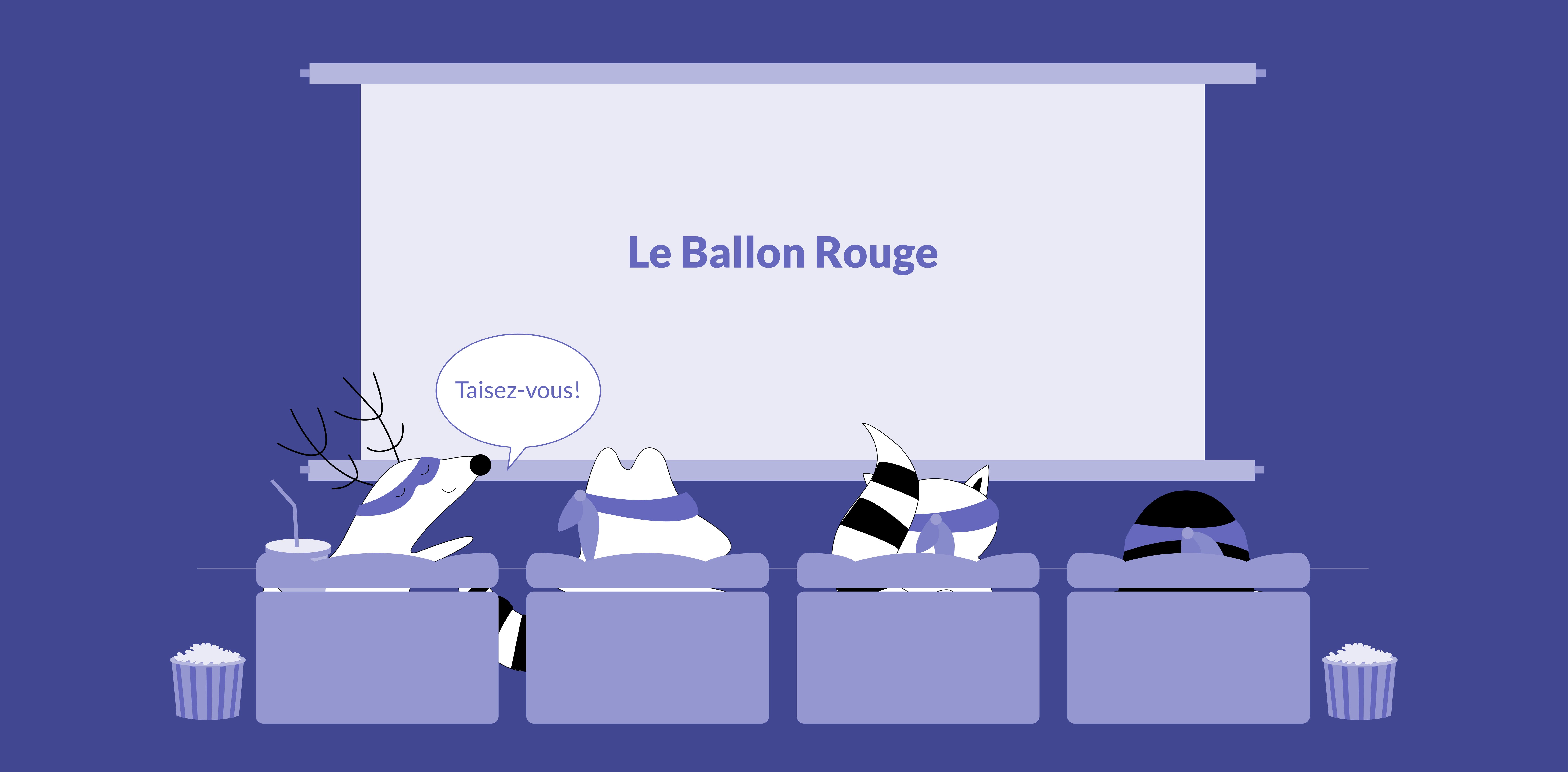
Stepping into the French language isn't merely about mastering the grammar rules and expanding your vocabulary with an assortment of eloquent words. It’s also about navigating the daily conversations that locals have and embracing the colloquial expressions that give French its lively, nuanced flavor.
In this article, we'll explore the art of asking someone to be quiet in French, exploring much more than the formal Sil-vous-plaît — although this one is undeniably vital, too. French, with its melodic undertones and elegant syntax, offers a picturesque phrase for this very action.
Join us as we dive into articulating this request with the grace and finesse befitting the language of love and diplomacy.
Learn French with Langster
"Shut Up" in French: A Multifaceted Resonance
When it comes to hushing someone in French, you're not just using one expression; you're invoking an array of phrases that vary in register, politeness, and degree of offense.
Let's break down some common ways to say "shut up" in French and understand the cultural setting each is best suited for. Below, you will also find audio for each French expression and some pronunciation tips for practicing.
Tais-toi
This is the standard translation for "shut up" in French. It's the most neutral, commonly used version, which can be employed with friends and family without invoking any strong feelings.
French
English
Tais-toi.
Shut up.
Accentuate the ta and toi sounds, with the oi generally pronounced like “wah.”
Keep in mind that its appropriateness largely depends on the context and tone of voice — using it in a heated manner or towards an authority figure (a parent, teacher, or employer) can transform it from a simple request for silence into a disrespectful remark.
When addressing multiple people, switch toi to vous, like here:
French
English
Taisez-vous.
Shut up.
Ferme ta bouche
Directly translated, this means "close your mouth." It's slightly more playful and less harsh than others on the list but still carries a clear command to someone to silence their words.
French
English
Ferme ta bouche.
Shut your mouth.
Ensure the “r” is lightly trilled and that the bouche has an elongated “o” sound that collapses at the end.
La ferme! or Ferme-la
These two expressions are the quintessential "shut ups" of the French language, with the la referring to la bouche (mouth) from the previous expression or la gueule (face). They are used with more assertiveness and can come across as slightly more rough or serious, even in jest.
French
English
Ferme-la.
Shut up.
La ferme!
Zip it!
Like above, make the “r”s known — they should vibrate but not overbear. The final “a” of la and la of ferme-la should blend into the following vowel as if it were one word.
Contextual Note: La ferme also means just “the farm,” but the context in which the word is used makes its meaning rather straightforward.
Chut!

The French equivalent of the English "shh," chut is less a command and more of an onomatopoeia. It’s typically softer and often used in situations that require silence, like a library or during a movie.
French
English
Chut!
Shh!
This is straightforward, with the “sh” as in “shrimp” and the “u” further back in the throat than in English.
Boucle-la
This phrase, which loosely translates to "shut it," is more stern and can be considered moderately offensive, so it's best used with close friends who understand you're joking.
French
English
Boucle-la.
Shut it.
Remember that in French, “r”s are not rolled as in Spanish. The “oo” in boucle is like the “oo” in “food.”
Ferme ta gueule!
Now, we're getting into the strong language. Ferme ta gueule, roughly translated as "shut your mouth," is a brusque command typically used in a heated or more aggressive context.
French
English
Ferme ta gueule!
Shut your mouth!
The “gue” in the word gueule is a tricky sound, with the “g” closer to the throat than in English, and the “ue” pronounced like “oo” in “shoe.”
Ta gueule!
This is the shortest, most abrupt, offensive, and rude way to tell someone to be quiet in French. It’s akin to an English-speaking person saying, "Shut it." It's recommended to avoid using this in all but the most informally hostile of situations, typically among peers, and even then — with caution.
French
English
Ta gueule!
Shut the hell up!
This time, it's shortened, so there's less of the distinct “ta” before the gueule, and the “g” in gueule is still back in the throat.
It’s also common among young people to abbreviate this phrase as tg in texting.
Cultural Context and Usage
Knowing the spectrum of "shut up" expressions is just a start.
Understanding the cultural context and usage of each is where language truly comes alive. Whether in the classroom, with friends, or at a business meeting, knowing which French "hush" phrase to use can make or break a situation.
When and How to Employ These Expressions
As a rule of thumb, the closer the relationship, the more informal the expression. Tais-toi and Ferme ta bouche can be used in most social situations, while Ta gueule! is reserved for the most extreme contexts.
Remember, body language also plays a significant role. A subtle hand gesture or a facial expression could often replace the words—but use discretion to not come off as rude.
Cultural Implications and Nuances
Each of these expressions is a window into the French way of communication. La ferme!, for example, might be used humorously between close friends, playing on the edge of the line between jest and instruction.
It’s this subtle blending of context and tone that truly demonstrates language in action.
Polite Alternatives and Playful Variations

Of course, there are always occasions where extolling silence needs to be done with finesse — or, conversely, when the situation calls for laughter with the hush.
Here are some polite and non-confrontational ways to ask for a bit of quiet:
| French Expression | Translation | Explanation |
|---|---|---|
| Puis-je vous demander de baisser la voix? | May I ask you to lower your voice? | It’s a polite and formal way to request quiet in a professional or public setting. |
| Pourriez-vous chuchoter, s'il vous plaît? | Could you whisper, please? | This is another indirect and gentle approach, perfect for libraries or theatres. |
| Motus et bouche cousue. | Mum's the word. Keep it under your hat. My lips are sealed. | Not directly commanding silence, it playfully suggests keeping a secret or not speaking of the matter at hand. |
| Bavardage interdit! | No chatting allowed. | A fun, legalistic twist to the request for peace and quiet. |
| Zone sans mots! | Wordless zone! | This is another playful way to declare a temporary quiet policy in a lighthearted or creative space. |
| French Expression | Translation | Explanation |
|---|---|---|
| Puis-je vous demander de baisser la voix? | May I ask you to lower your voice? | It’s a polite and formal way to request quiet in a professional or public setting. |
| Pourriez-vous chuchoter, s'il vous plaît? | Could you whisper, please? | This is another indirect and gentle approach, perfect for libraries or theatres. |
| Motus et bouche cousue. | Mum's the word. Keep it under your hat. My lips are sealed. | Not directly commanding silence, it playfully suggests keeping a secret or not speaking of the matter at hand. |
| Bavardage interdit! | No chatting allowed. | A fun, legalistic twist to the request for peace and quiet. |
| Zone sans mots! | Wordless zone! | This is another playful way to declare a temporary quiet policy in a lighthearted or creative space. |
Expressing Disbelief in French
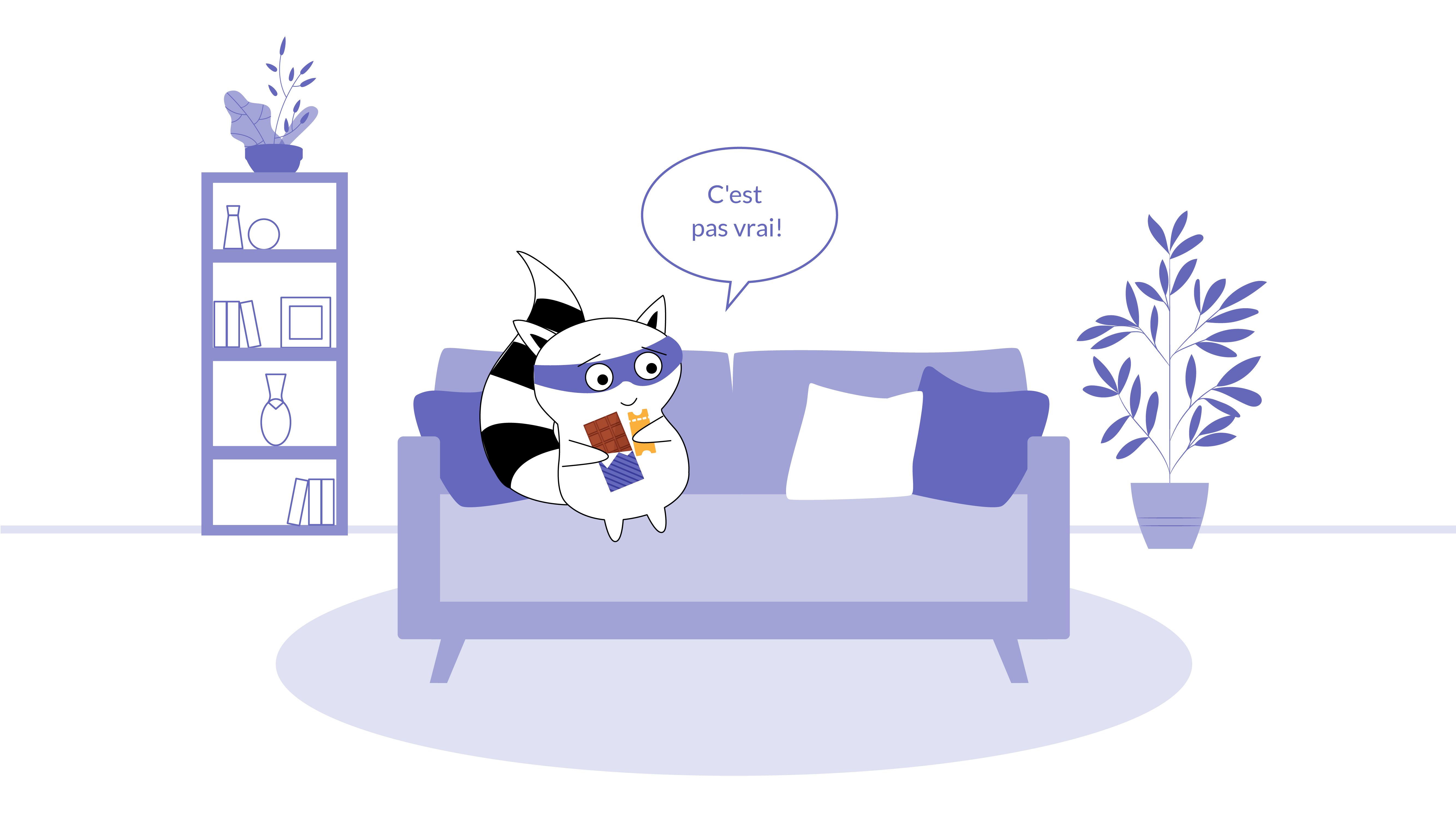
In American English, it’s not strange for someone to exclaim "Shut up!" when expressing disbelief rather than as a command for someone to be quiet.
In French, there isn't a direct equivalent used in this particular way. Instead, French speakers have their own unique expressions to convey surprise or disbelief. Here are a few you might hear:
| French Expression | Translation | Explanation |
|---|---|---|
| C'est pas vrai! | No way! You’re kidding! | Grammatically, the correct form is Ce n'est pas vrai, but in everyday, informal French, the ne is often dropped, articulating disbelief in a more colloquial style. |
| Incroyable! | Incredible! | This expression is used to show that something is so surprising it's almost hard to believe. |
| Pas possible! | Not possible! | This phrase is akin to saying, "I can't believe it!" It’s a common and emphatic way to express that the speaker is astonished by what they've heard. |
| French Expression | Translation | Explanation |
|---|---|---|
| C'est pas vrai! | No way! You’re kidding! | Grammatically, the correct form is Ce n'est pas vrai, but in everyday, informal French, the ne is often dropped, articulating disbelief in a more colloquial style. |
| Incroyable! | Incredible! | This expression is used to show that something is so surprising it's almost hard to believe. |
| Pas possible! | Not possible! | This phrase is akin to saying, "I can't believe it!" It’s a common and emphatic way to express that the speaker is astonished by what they've heard. |
Use these phrases to share your astonishment without confusion in a French-speaking context.
Break the Silence: Putting It Into Practice
Understanding these phrases is one thing, but using them confidently is where the real learning happens. Conversation is an exchange of context, and language is the tool to navigate it.
Practice these phrases in a mirror, use them in appropriate settings, and, most importantly, pay attention to the reactions, social cues, and cultural nuances.
Wrapping Up
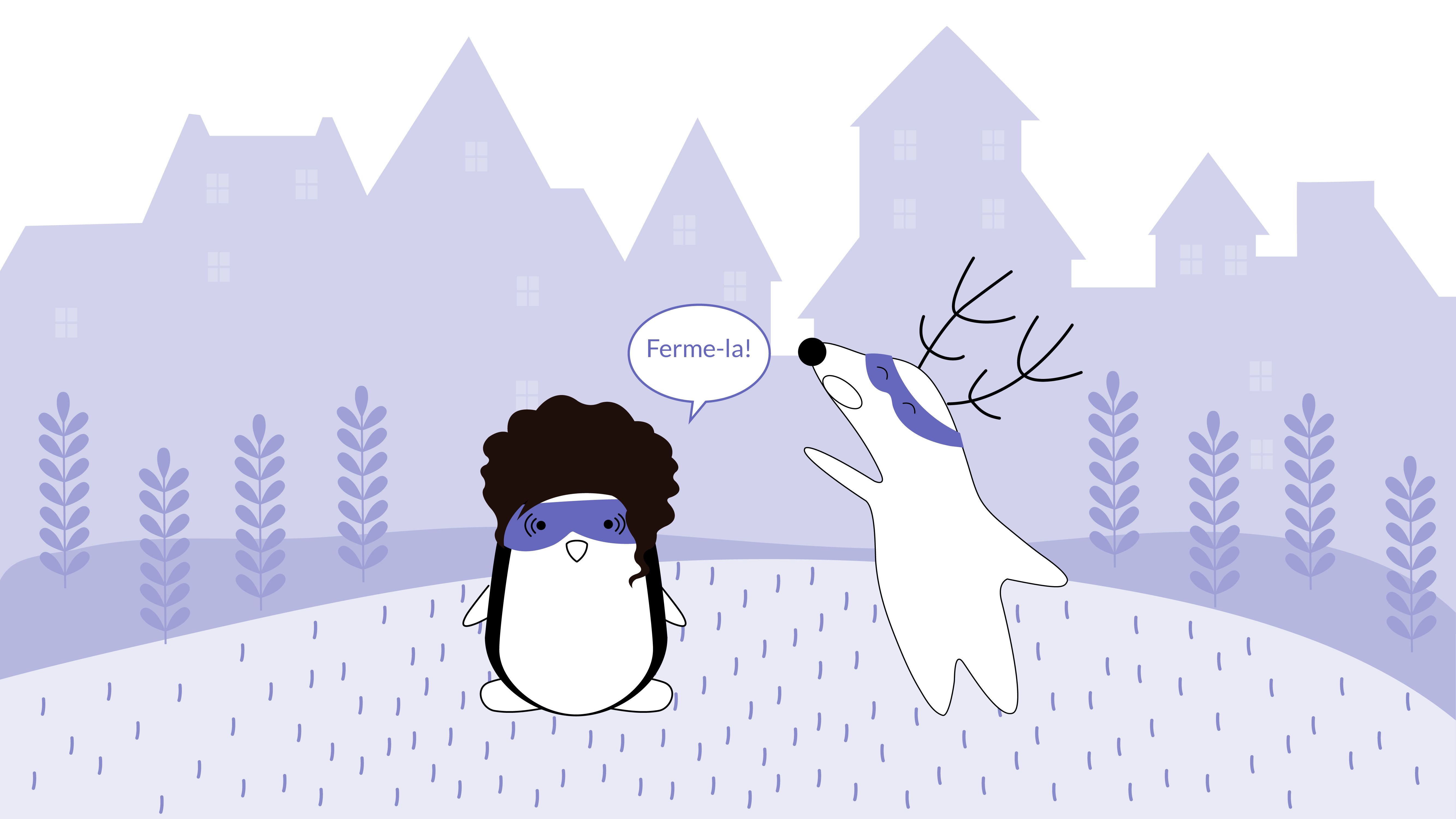
Learning to say “shut up” in French isn't just about finding the word-for-word translation. It’s about embodying the cultural context that infuses everyday language. By mastering these phrases, you not only build your communication skills but also gain insights into the rich tapestry of favorite colloquialisms used by the French people.
Language learning is an adventure, and mastering the colloquial is a gateway to truly understanding and embracing the culture of your target language. To move your journey forward, download our Langster app, and learn French with stories and real-life examples. Stay curious, keep practicing, and above all, enjoy the vibrant world of the French language.
Learn French with Langster







